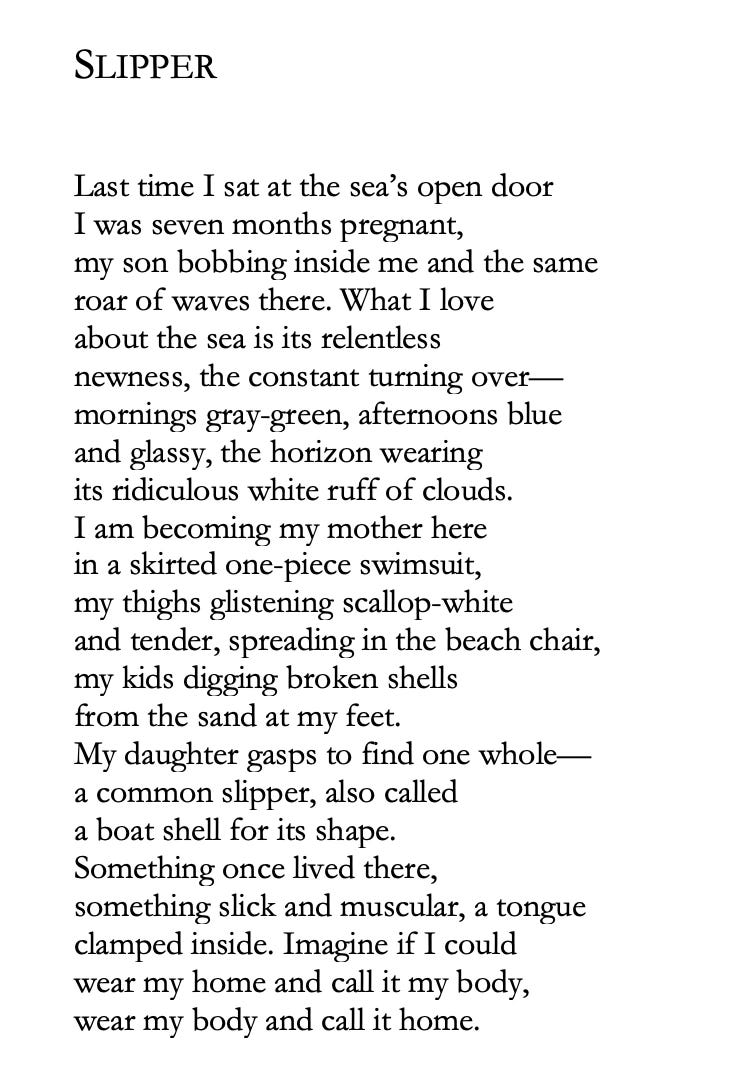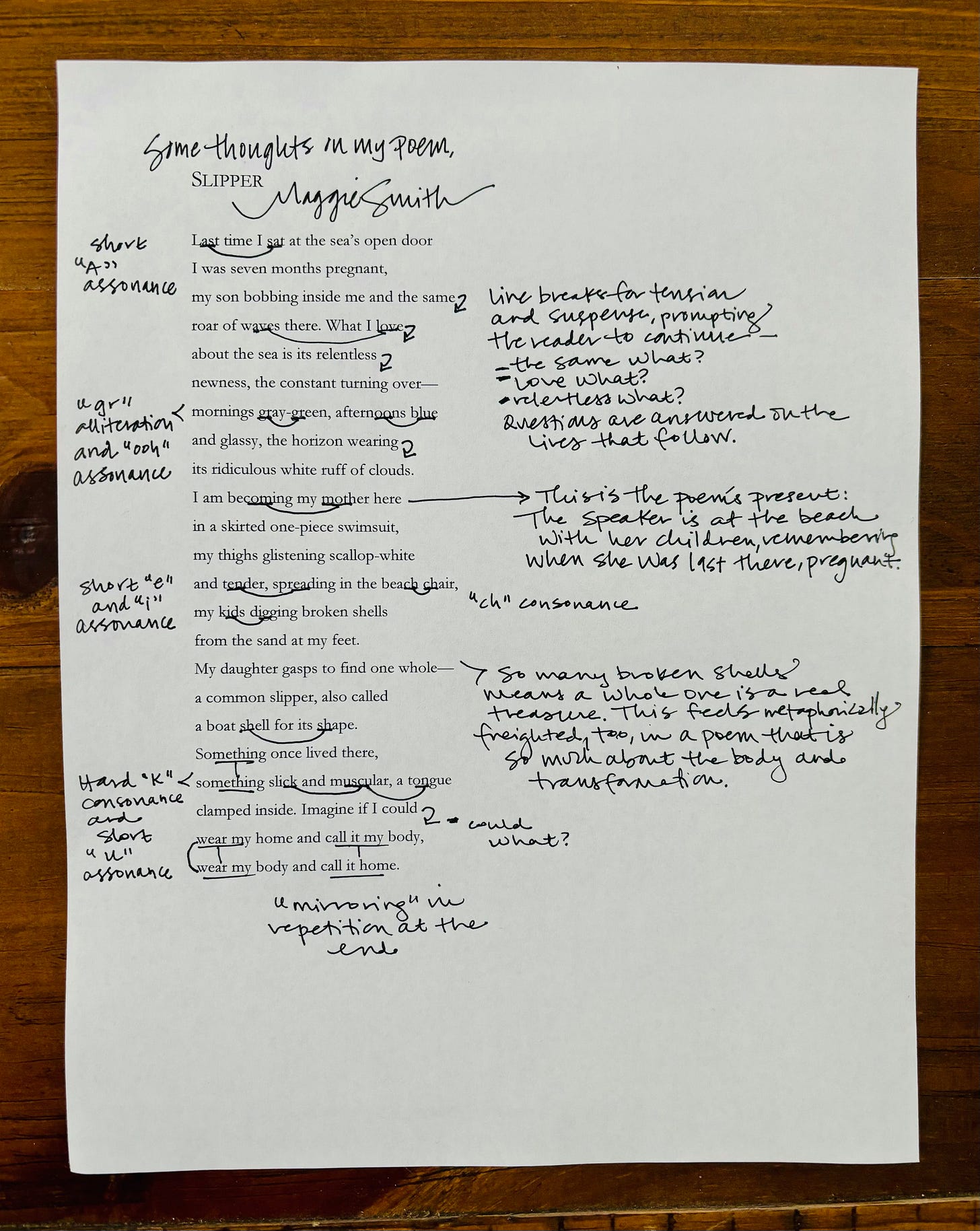Hi, Friend.
Thanks to social media memories popping up—always an emotional minefield!—I know that twelve years ago this week, I took my daughter to see the circus train arrive and the elephants walk up Grandview Avenue. Violet was three, and I was pregnant with Rhett.
I mentioned this to Violet, and she said, “I thought I dreamed that. That really happened?”
I laughed. “It really happened.”
This got me thinking about how memories blur and lose their definition over time—how they can seem dreamlike, diffused, in the distance. Writing is a way to keep these things clear, for ourselves and for each other.
“You remember too much,
my mother said to me recently.
Why hold onto all that? And I said,
Where can I put it down?”
—Anne Carson
This weekend I’m off to the Longleaf Writers Conference in Seaside, Florida, and I’m remembering being at the beach with my kids when they were small, and thinking about being away from them—and my own mom—this Mother’s Day. So today I’m sharing an annotation of my poem “Slipper,” a poem that keeps the edges of a memory defined for me. This poem appears in Goldenrod, and it was first published in The Adroit Journal. Thank you to editor Peter LaBerge for giving it such a lovely first home.
I remember beginning to draft this poem on a beach vacation, after helping the kids dig for shells and build sand castles. When my daughter found a whole boat shell—a common slipper—we talked about how finding an empty shell is like finding an empty house. A creature once lived inside it.
The metaphor is so often right there, isn’t it?
The last time I’d been to the beach, I was very pregnant with my son. This time, both children were with me, and I was noticing how much my body reminded me of my own mother’s. Being a mother has been the most profound experience of my life, and it’s also been bewildering in plenty of ways. I shared my body with these two human beings, and that cohabitation changed me emotionally but also physically. There have been moments where, as a mother, I’ve felt estranged from my body—not at home. This was one of them, and I grappled with that in the poem.
In the annotation above I’ve noted some of the craft choices I made as I drafted the poem, including line breaks for tension and suspense. Being at the ocean, with its overwhelming roar of waves, inspired me to focus on music and repetition. As you read the poem aloud, you’ll hear the assonance—the repetition of similar vowel sounds—in words like afternoon and blue, kids and digging, muscular and tongue. There’s also alliteration (gray-green and shell/shape) and consonance (ch in beach/chair, hard k in slick/muscular). I used repetition for emphasis, especially in the last two sentences at the end of the poem, both with something doubled and the doubling of wear my and call it in the last two lines, where both phrases appear stacked.
“Slipper” was inspired by the idea of being home in oneself, despite the changes—the “constant turning over”—that are part of this life, whether we’re parents or not. There are still mysteries in this poem for me to find, and I prefer to leave it that way. It came to me at the beach, and when I read it now, I see—and remember—new things. Poems do this for us, don’t they? We can enter them again and again, and always find ourselves in a new place. Poems, like the sea, offer us “relentless newness.”
Thank you for being here. For Dear Life has been a joy for me, and I hope it’s been a generative and useful space for you, too. Keep an eye on your inbox for a craft tip and revision hack soon. We’ll look at sequencing the ideas and images in a piece of writing and experimenting with different options.
Happy writing—
Maggie






Such an evocative poem. Gorgeous. It's such a treat to see your annotations! Also I am very much appreciating there is a place called Seaside. Have a great time Maggie.
Your annotations are gold nuggets of treasure to me. Thank you.